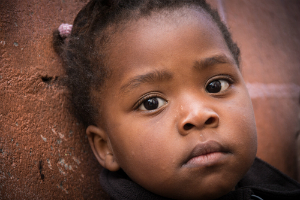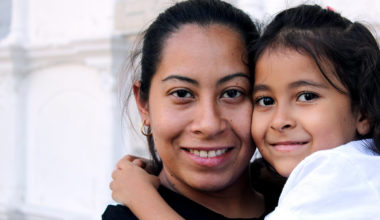It’s important for everyone to continuously work at improving their mental and physical health, but especially for individuals in the BIPOC community. Carrying a deep and complicated history of generational and racial trauma can take a significant toll; carving out moments for joy and self care is crucial.
What is Black Joy?
For too many years, a white supremacist culture has controlled and minimized Black expression, diminishing Black Joy. Black people and Black voices have been suppressed and controlled, from slavery and colonialism to racism today. The act of celebrating Black Joy creates space to resist this culture of oppression by finally allowing the feelings of joy to be wholly experienced as its very own act of resistance.
No matter the mode of creative self expression one might choose, the Black Joy movement supports the mindset of being rebelliously joyous. Society has tried to take away joyous moments from Black People, and even as work continues to be done to dismantle systems of inequality, rejoicing in Blackness is one of the most powerful and necessary things you can do.
Black Joy can be seen as a healing mechanism. It gives people a breath of fresh air amidst the overload of traumatic posts and events. Joy can help heal. Even if you don’t identify as Black, you can celebrate Black Joy by amplifying Black voices and by promoting Black creativity and culture. You can join informative conversations that educate and celebrate Blackness.
“Being secure and taking pride in our Blackness is an important element in healing from racial trauma and continuing to fight against systems of oppression.”
Black Joy and Juneteenth
On Juneteenth, a federal holiday commemorating the emancipation of enslaved African Americans, celebrating Black Joy and Black culture is more important than ever. The act of celebrating freedom while acknowledging that the history of slavery continues to impact Black lives makes Juneteenth a paradoxical holiday, but it also shows the perseverance of Black Joy throughout a complicated past.
In the early days, Juneteenth was often celebrated with baseball, fishing, church programming, rodeos and decadent meals. Symbolic red foods such as red beans and rice, punch, red velvet cake, and watermelon were eaten, red representing the strength and perseverance of Black ancestors. Today, the celebrations might look a little different, but it is still a day that Black Americans pause to celebrate. It might mean Black friends joining together to dance for a TikTok skit, promoting Black businesses, or enjoying a barbecue. Non Black folks can use the day to pause and learn a bit more about the tragic past that has led to our difficult present — Talkspace therapist Ashley Ertel LCSW, BCD, C-DBT recommends reading Ibram X Kendi’s book Stamped from the Beginning. Non Black individuals can also think about any action they can take in their own life to uplift and support Black voices.
How to Focus on Your Mental & Physical Health
Taking time to truly celebrate Black Joy will undoubtedly have a positive impact on your mental health. Here are some ways you can focus on improving your mental and physical health while holding space for Black Joy.
1. Self Care
Self care is a critical component to racial justice. As activist Audre Lorde wrote in her 1988 essay collection A Burst of Light: “Caring for myself is not self-indulgence, it is self-preservation, and that is an act of political warfare.”
What do you love to do? Is it cooking, dancing, making art, or reading that book you’ve already read six times on a park bench? Whatever it is, let yourself do it guilt free and bask in the sense of joy that the action gives you.
Part of self-care is caring for your mental health. If you’re looking to heal from any past trauma, you might want to consider therapy. Even if you don’t have any mental health conditions, in-person or online therapy is a viable option for people who wish to learn more about themselves and truly live in a mode of self-care as they work towards their best selves. The more you work on yourself, the more you can contribute toward the world around you. Learn why self-care is important and how it can help you contribute to your community.
“There are many ways to increase your sense of self. Some of my favorites include: finding a community of others who are also on a self-discovery journey, reading historically accurate books about the triumphs of our ancestors, and leaning into doing things that bring you joy for no reason other than you want to.”
2. Invest in yourself and your community
Support yourself on your journey of growth. What tools do you need to be successful? Prioritize what you need most whether that means taking a class, watching an online lecture, carving out time to work on that project you shelved or rewarding yourself with a new professional headshot.
Feed your passions. Look toward your community and see how you can show up for them — do you have an extra hour every week to tutor a student, do you know an elderly neighbor who might appreciate an extra conversation?
3. Support Black owned businesses
If there’s something on your shopping list or you’re in the mood to give yourself a little something, celebrate Black Joy by supporting a Black owned business. These companies would appreciate all your love and support. Try Kai for statement clothing, Rebecca Allen for shoes, and Briogio for clean, natural hair care products. If you’re looking for a new bank, OneUnited is the largest black-owned bank. Whatever you’re in the market to invest in, chances are there is a Black owned business you can support.
4. Learn about Black leaders and Black history
Learning more about Black heroes — including those who pioneered the Black Joy movement — can be inspiring and educating for everyone. It can help shed light on the past, provide greater context into how we got to where we are today and motivate us to move forward. The people that inspire you from the past don’t have to be celebrities or well-known leaders, either. Family history is important as well.
“Take a few moments to learn your own family history, and while you’re at it: take the time to honor your resilience in spite of generational trauma!”
5. Embrace your full self and influence others to do the same
Self love might sound cheesy, but it’s significant. No one’s perfect and everyone carries their own set of challenges and insecurities, but it’s important to appreciate yourself for where you are. Give yourself a pat on the back, you’re doing great.
“Start the conversation of self-love early and often with your children. Purchasing or renting books on the beauty of Blackness is an excellent way to start the conversation. You can then transition to age-appropriate but historically accurate books on our heritage. Our children deserve to develop in a world that embraces their whole selves.”
Mental Health Resources to Get Familiar With
If you’re on the hunt for resources that support BIPOC mental health, check out the organizations and resources below.
- BEAM: Black Emotional and Mental Health — a national training and grant making institution focused on the healing, wellness, and liberation of Black and marginalized communities.
- Therapy for Black Girls — an online community geared to promoting the mental wellness of Black women and girls. Talkspace was lucky enough to interview the founder and host of this podcast.
- Liberate — a meditation app designed for the BIPOC community and led by BIPOC teachers.
- The Loveland Foundation — an organization dedicated to bringing opportunity and healing to communities of color, and especially to Black women and girls.
- Black Emotional and Mental Health Toolkit & Resources — a cohesive library of enlightening handouts, journaling prompts, and social media posts working to destigmatize mental illness in the Black community.
Black Joy is a necessary and important mode of resistance. There are many ways to experience and express Black Joy, but give yourself the permission to do it! Celebrating Juneteenth is an important reminder of Black history, celebrations of Black independence, and continuing learning, but beyond this day and month, continue to care for yourself and the community with frequent moments of joy and support throughout the year.
Talkspace articles are written by experienced mental health-wellness contributors; they are grounded in scientific research and evidence-based practices. Articles are extensively reviewed by our team of clinical experts (therapists and psychiatrists of various specialties) to ensure content is accurate and on par with current industry standards.
Our goal at Talkspace is to provide the most up-to-date, valuable, and objective information on mental health-related topics in order to help readers make informed decisions.
Articles contain trusted third-party sources that are either directly linked to in the text or listed at the bottom to take readers directly to the source.




